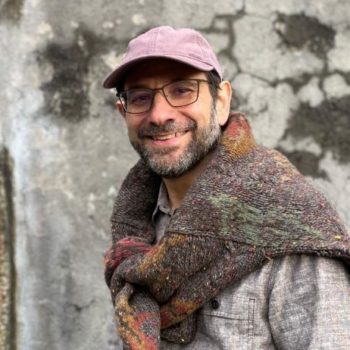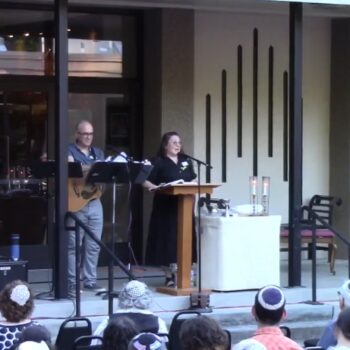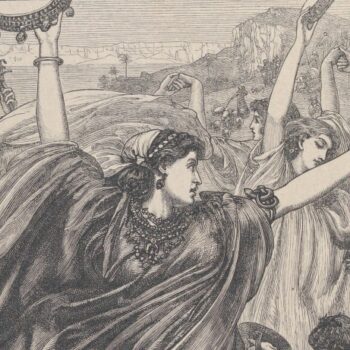In Pirkei Avot, a book of maxims in the Mishnah, an ancient rabbi, Ben Bag-Bag said about Torah study, “Hafokh bah, va’Hafokh vah, d’khola bah.” Turn it over and over, for everything is in it. For two thousand years, that’s what Jews have done. Here is another turning.
Whatever group you’re addressing, whether it’s a class, a congregation, or a team meeting, ask how everyone is. It shows you care as a teacher and leader. Small talk can make a big impact, and sometimes it’s these exact types of questions that remind us to pay attention to those around us.
In Pirkei Avot, a book of maxims in the Mishnah, an ancient rabbi, Ben Bag-Bag said about Torah study, “Hafokh bah, va’Hafokh vah, d’khola bah.” Turn it over and over, for everything is in it. For two thousand years, that’s what Jews have done. Here is another turning.
By living in proximity to others who share our values and traditions, we’re able to connect more deeply and support more vibrantly. I’m grateful every day to live in community with you.
In Pirkei Avot, a book of maxims in the Mishnah, an ancient rabbi, Ben Bag-Bag said about Torah study, “Hafokh bah, va’Hafokh vah, d’khola bah.” Turn it over and over, for everything is in it. For two thousand years, that’s what Jews have done. Here is another turning.
Water isn’t just a resource we need to live; it plays an important role in Jewish tradition beyond ensuring that living things can thrive. From the water used in ritual hand washing to the mikveh to tahara, the ritual washing of a body after death, water can transform from the inside out and the outside in. And this is no more evident than in our Torah portion for this week.
In Pirkei Avot, a book of maxims in the Mishnah, an ancient rabbi, Ben Bag-Bag said about Torah study, “Hafokh bah, va’Hafokh vah, d’khola bah.” Turn it over and over, for everything is in it. For two thousand years, that’s what Jews have done. Here is another turning.







